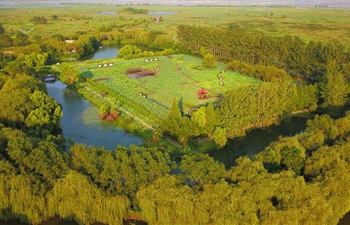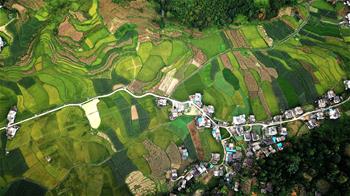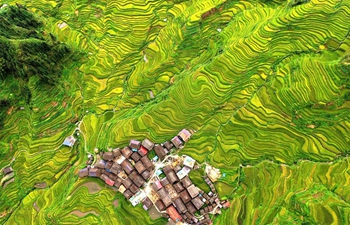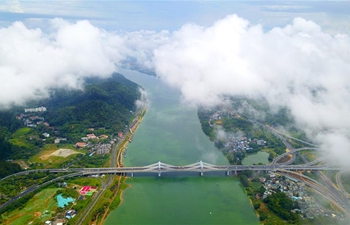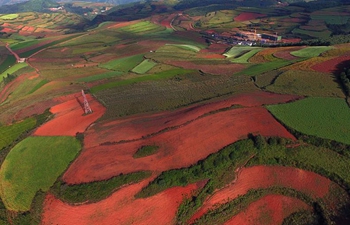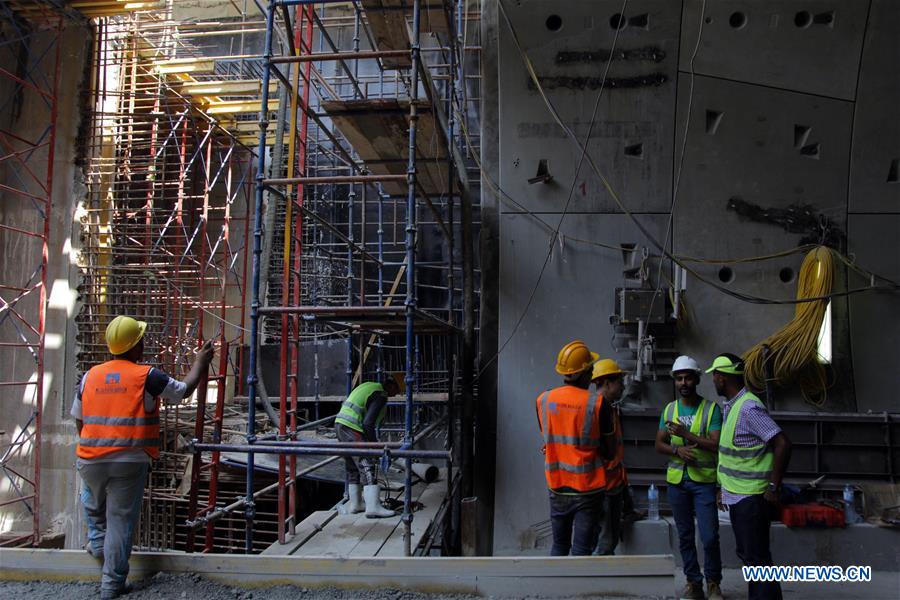
People work in a tunnel under construction in Ismailia, Egypt, on Sept. 4, 2018. Egypt will inaugurate soon two twin-tube road tunnels linking the restive Sinai Peninsula to the Egyptian heartland, a project Egypt hopes would help improve the impoverished territory. (Xinhua/Ahmed Gomaa)
by Ahmed Shafiq
ISMAILIA, Egypt, Sept. 7 (Xinhua) -- Egypt will inaugurate soon two twin-tube road tunnels linking the restive Sinai Peninsula to the Egyptian heartland, a project Egypt hopes would help improve the impoverished territory.
The tunnels are part of the Suez Canal Corridor Area Project, which was launched in August 2014 and aims to increase the role of the Suez Canal region in international trading.
The project will also facilitate the development of three canal cities, namely Suez, Ismailia and Port Said, as well as Sinai Peninsula.
Last week, Egypt announced that South Port Said and North Ismailia tunnels, which run under the Suez Canal, were near completion.
It is expected that Egyptian President Abdel-Fattah al-Sisi will open the two tunnels, located northeast of Cairo, in October.
The new tunnel system is meant to meet the requirements of development in the Peninsula and completely eliminate the traffic congestion, which has gone far beyond the capacity of the ferries of the Suez Canal Authority, Al-Salam Bridge and the Ahmed Hamdi Tunnel.
The tunnels, which costed 1 billion U.S. dollars, will shorten the time for crossing the Suez Canal to 10 minutes, instead of waiting for the ferries for several days.
The Armed Forces Engineering Authority, which oversees the tunnel projects, contracted with Petrojet and Concord Egyptian construction companies to build the North Ismailia tunnels, which run under the existing and new Suez Canal north of the city of Ismailia.
The tunnels are the largest in Egypt with a diameter of approximately 13 meters at a maximum depth of almost 70 meters below ground level.
The total length of the North Ismailia parallel tunnels is about 5.82 km, while those of Port Said measure 3.92 km long.
Nader al-Ziny, a civil engineer with Concord Company, which is in charge of quality control at Ismailia tunnels, said his company ended the excavation of the two tunnels in July, adding that they are now finalizing the construction process inside the tunnels.
"These tunnels are of great economic and development value ... they also have human value as they link Africa and Asia continents," al-Ziny said.
Egyptian experts believe this project is important as it will help develop North Sinai, which has been suffering terror for more than four years.
Terror attacks in North Sinai started to rise following the military ouster of former President Mohamed Morsi in July 2013 in response to mass protests against his one-year rule and his currently outlawed Muslim Brotherhood group.
The attacks killed hundreds of policemen and soldiers, before starting to extend nationwide to target the Coptic minority in their churches.
Along with the Egyptian army's crackdown on terrorists in Sinai, Egypt has started a plan, which will be completed by 2022, to develop the peninsula at a cost of 15.6 billion dollars
"The government's plan to develop Sinai is a heavy blow to terrorism in Sinai," Mohammed Shehata, head of Egyptian Transport Association, told Xinhua.
Development in the Sinai region is a strong tool to combat terrorists based in the northern part of the peninsula, Shehata said.




